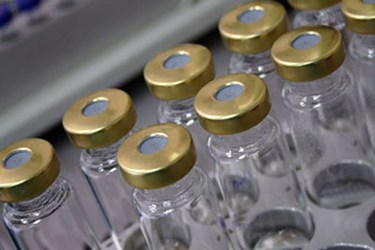Angiochem Wins Both Fast Track And Orphan Status For GBM Drug

Clinical stage biotech Angiochem announced that it has received both Orphan Drug status and Fast Track designation from the U.S. Food and Drug Administration (FDA) for its lead drug candidate ANG1005, an investigational treatment for glioblastoma multiforme.
Dr. Jean Paul Castaigne, CEO of Angiochem, said, “We are pleased that the FDA supports our applications for both fast track and orphan drug designation for ANG1005 for the treatment of glioblastoma multiforme. These are important regulatory milestones for the program. We will continue to work closely with the FDA as we advance ANG1005 through clinical development and the associated regulatory processes.”
ANG1005 is a novel paclitaxel-peptide drug conjugate. It is the first oncology product to use the low density lipoprotein receptor-related protein 1 (LRP-1) pathway to penetrate the blood-brain barrier (BBB) and get into cancer cells. The investigational drug is currently in Phase II clinical development in high grade gliomas and brain metastasis from HER2+ breast cancer.
Glioblastoma multiforme are glial tumors that often spread quickly and invade nearby brain tissue. According to the National Cancer Institute, there will be an estimated 23,380 new cases of brain tumors and other nervous system tumors in 2014, with around 14,320 cases ending in death.
Fast track designation is awarded to speed the development and review of new drugs intended to treat serious, life-threatening conditions. These drugs must demonstrate the potential to address significant unmet medical needs. Along with increased and more frequent interactions with the FDA, fast track designation confers the following benefits: eligibility for accelerated approval, conditional rolling review, and eligibility for priority review from the FDA.
Orphan drug status promotes the development of therapeutics aimed at treating rare diseases which affect less than 200,000 people in the U.S. every year. If approved, drugs under orphan designation gain a seven year period of marketing exclusivity in the U.S.
The company also announced that it presented positive central nervous system (CNS) and peripheral anti-tumor activity of ANG1005 at the recent American Society of Clinical Oncology (ASCO) 50th Annual Meeting held in Chicago.
